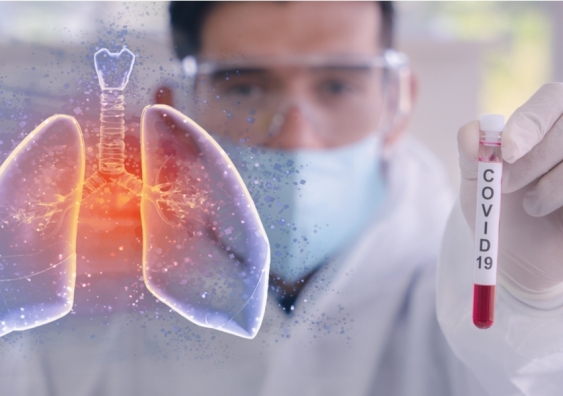UNSW Sydney researchers have received funding from the Australian Government for COVID-19 projects, including the development of new antibody drugs and to repurpose medications.

UNSW Sydney researchers have received funding from the Australian Government for COVID-19 projects.
Researchers from UNSW have been awarded more than $3.9 million in funding for three new COVID-19 research projects.
The funding is part of $66 million in funding announced by the Minister of Health, the Hon. Greg Hunt into finding a vaccine and treatments for COVID-19, as well as better preparing for future pandemics. The funding is available through the Government’s Medical Research Future Fund (MRFF), extending the $30 million already pledged for the Coronavirus Research Response.
UNSW Dean of Medicine Professor Vlado Perkovic said the funding will enable UNSW researchers to contribute to global efforts to control and eliminate COVID-19.
“UNSW is committed to helping protect the Australian and global community from COVID-19. From treatment of COVID-19 using promising plasma and monoclonal antibodies, to using common blood pressure medications to assess whether they prevent lung failure, our researchers are doing what they can to make a difference during this difficult time,” Prof. Perkovic said.
COVID-19 therapy using antibodies from hyperimmune plasma
Research led by UNSW Kirby Institute’s Director Professor Anthony Kelleher has received $2 million for its program to discover a COVID-19 therapy using antibodies from plasma.
“There is currently no universal treatment for COVID-19, but our initial research indicates that harnessing antibodies from recovered patients is a promising approach and could be rapidly developed as a therapy,” Prof. Kelleher said.
“The antibodies we use are called hyperimmune antibodies. They are ‘hyperimmune’ because they contain very high levels of SARS-CoV-2 antibodies, which we think will boost the immune response in people who are experiencing severe health outcomes of COVID-19 and assist them to fight off infection.”
“We have previously demonstrated that antiviral therapies can be taken preventatively for HIV. The approach we are pursuing for COVID-19 will work if the preparation contains such high levels of antibodies, it prevents the infection from taking hold in an individual’s body, even if they are exposed. Until we have an effective vaccine or monoclonal antibodies, preventative treatment such as hyperimmune plasma will be an essential part of our approach to combatting COVID-19, particularly for those at risk, like health care workers and the elderly,” Prof. Kelleher said.
COVID-19 therapy using monoclonal antibodies
Professor Daniel Christ from UNSW Medicine and the Garvan Institute of Medical Research has received $595,000 to develop monoclonal antibodies. A joint collaborative effort of the Garvan Institute of Medical Research and the Kirby Institute this initiative focuses on further developing the hyperimmune antibody concept into standardized medicines that can be produced in the laboratory in unlimited quantities.
“Addressing the COVID-19 emergency requires an unprecedented global effort to generate new medicines,” Prof. Christ said.
“Monoclonal antibodies are a validated class of drugs, with a well-defined development pathway and high success rates of translation into clinical practice. Unlike vaccine and plasma-based approaches, monoclonal antibodies can confer standardized passive immunity, eliminating variation between individual patients, as well as eliminating batch-to-batch variation.”
“We know that monoclonal antibodies can be highly effective against respiratory viruses, in both prophylactic and therapeutic applications, even against pathogens for which we have been unable to develop effective vaccines. Monoclonal antibodies may provide long-term protection for at risk individuals, including those with compromised immunity, front line staff, and the elderly which are at particular at risk from COVID-19,” Prof. Christ said.
Investigating the use of common blood pressure medications to reduce the duration and severity of lung failure
A trial led by Associate Professor Meg Jardine from the George Institute for Global Health and UNSW Medicine has received $1.4 million. The CLARITY trial will test whether a group of common blood pressure medications reduce the duration and severity of lung failure due to COVID-19.
This group of blood pressure medications have been in clinical use for over 30 years. They protect against lung injury in animal studies, including injury from viruses like the COVID-19 virus, although the effect in humans is not known.
These medications are well-understood, widely available and low cost. A/Prof Jardine said that if the trial shows they are beneficial, the results could be widely implemented into clinical care immediately.
“The threat of COVID-19 outbreaks will remain with us for some time. Repurposed medications that can lessen the duration and severity of COVID-19 disease may provide some relief whilst vaccines are being developed,” A/Prof Jardine said.








